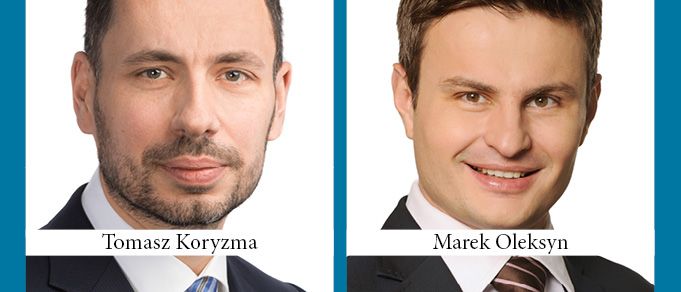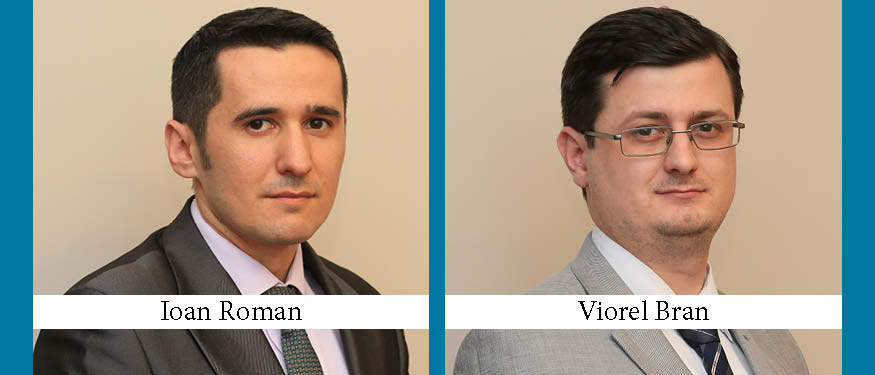With ever-increasing spending on research and development and innovation, patents and patent applications are becoming an increasingly important part of business throughout the world, including Poland. Patentable inventions as well as confidential technological know-how now constitute key assets of numerous businesses operating across all sectors of the Polish market.
Persons Entitled to File a Claim to Terminate the Exclusive Right of a Trademark Holder for Non-Use in Estonia
Some time ago the Supreme Court of Estonia issued Decision No 3-2-1-167-14 in a cancellation action involving the substantial question of determination of an interested party. This decision expanded the rights of the trademark owners. However, even though the decision provides some insight on which interested parties may file a cancellation action based on non-use of a trademark, the term “an interested party” still remains vague in Estonia.
Large Body of New Regulation to Affect Financial Services and Data Protection
Legislators on both the European and Czech level have been active in adopting new regulations that influence several areas of the modern economy. Financial services, with consumer finance on one side and markets in financial instruments on the other, have been at the center of these efforts. Financial regulation is not, however, the only measure heavily affecting banks, investment firms, and FinTech companies by putting new compliance requirements in place. Another huge legal instrument – the General Data Protection Regulation adopted on the EU level in 2016 – imposes new requirements on all companies dealing with personal data.
Czech Market Snapshot: GDPR - Storm in the IT Cup?
In the Czech Republic, the most important buzzword in the field of legal services and IT deliveries is “GDPR-Compliance” and it has serious ramifications for organizations, businesses, and public corporations.
New Regulatory Framework for Payment Services in the Czech Republic
As the Directive of the European Parliament and of the Council on Payment Services in the Internal Market (PSDII) introduces a number of changes to existing Czech legislation, a completely new Payment Services Act regulating the provision of payment services will be adopted in the Czech Republic. PSDII should be implemented by January 13, 2018.
Czech Real Estate Transfer Tax After the Latest Changes: Catching Up with Regional Trends?
This past autumn brought extensive changes to the Czech Republic’s real estate acquisition tax, which, according to lawmakers, should align the country’s regulation to the European standard. Is it really the case? With the assistance of members of the Real Estate team within Taylor Wessing CEE, we compare the new regulation to those in neighboring countries.
Comparison Makes Perfect: Turkey to Allow Comparative Advertisements in 2018
It would not be unreasonable to suggest that most developments in commercial markets occur as a result of competition between participants and manufacturers of similar products. From an end-user’s perspective, it is always easier to recognize products and/or make comparisons between products on the basis of specific brands/trademarks.
Key Compliance Risks of 2016: Information Security
In recent years information security issues have become extremely important for companies in Russia and around the world. For example, in 2015, almost 300 million U.S. dollars were stolen from more than 100 banks and other financial institutions throughout the world. By the middle of 2016, FinCERT, the Russian system of monitoring of cybersecurity incidents in the financial sphere, had registered 21 targeted attacks aimed at thievery of approximately 2.87 billion rubles (approx. USD 48 million). In addition, during 2016, major Russian banks such as Sberbank, Otkritie, Alfa-Bank, VTB, and Rosbank suffered massive DDoS attacks.
Can Parties Rely on Arbitration Clauses in CEE Disputes?
In the European Union, competence of courts is harmonized and regulated by Brussels Ibis regulation No. 1215/2012 (the “Regulation”). The competence of courts determined by the Regulation is protected and applies unless the Regulation stipulates otherwise. Arbitration is not subject to EU harmonized regulations. It is governed by international treaties, most notably the New York Convention.
In Need of an Arbitration Law
The unique political and administrative landscape of Bosnia and Herzegovina has resulted in far too many legislative levels and regulations for a country of its size.
Dispute Resolution in Poland 2016
2016 has been a challenging year for dispute resolution in Poland, due primarily to the numerous changes in regulatory framework that have come or will come into effect. In particular, since the country’s 2015 parliamentary elections, the government has been working on regulations related to group action proceedings, procedures for collecting claims, and various criminal law issues.
Hungary to Introduce New Act on Civil Litigation Procedures
Hungary’s current Act on Civil Litigation Procedures was adopted in 1953, and it served courts, counsels, and parties in litigations well over decades of the socialist regime.
Austrian Alternative Dispute Resolution Act: New Disclosure and Information Obligations for Entrepreneurs
Directive 2013/11/EU of the European Parliament and of the Council of May 21, 2013, on alternative dispute resolution for consumer disputes (“Directive on Consumer ADR”) obliged Member States to bring into force the laws, regulations, and administrative provisions necessary to comply with it by July 9, 2015.
Major Reforms to Enter into Force in 2017
Since former Of Counsel of Taylor Wessing Bratislava Lucia Zitnanska was appointed Slovak Minister of Justice in April 2016, the legislative changes prepared by her department have primarily been driven by the practical need to improve the enforceability of law and increase the importance of e-communication tools. To those ends, two major reforms concerning debt enforcement will enter into force in the first half of 2017.
When Arbitration Meets Insolvency in Montenegro – Can They Coexist?
Even at first blush, it is apparent that arbitration and insolvency make strange bedfellows.
Securing Your Victory Beforehand
Debt recovery is one of the most challenging parts of day-to-day business, especially in an environment where debtors aim to hinder enforcement by fraudulently diminishing their estate.
The Constitutional Court of Slovenia (Court) Decides in a Highly Anticipated Bail-In Case
Currently, one of the main issues in Slovenia is the ruling in late October 2016 of the Constitutional Court of Slovenia regarding constitutional rights violations suffered by investors in five major Slovenian banks when both their equity capital and the subordinated instruments were written off as a result of extraordinary measures exercised by the Bank of Slovenia between December 2013 and December 2014 as a result of the systemic banking crisis.
Amendment to Bulgarian Legislation Facilitates Mass Claims
In November, the Bulgarian Parliament began debating the amendments to the Competition Protection Act (CPA) with respect to the implementation of the EU’s Directive 2014/104/EE on Damages Actions for Antitrust Infringements (the “Directive”). Interestingly, the main aim of the Directive and the proposed amendments to the CPA – facilitating the private enforcement of infringements of competition law – coincides with what is probably the biggest cartel investigation in the history of the Bulgarian Commission for Competition Protection (CCP).











































